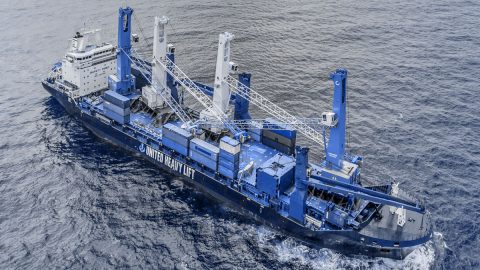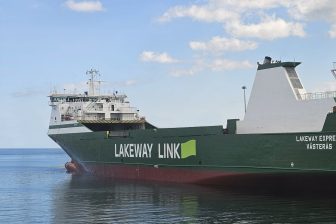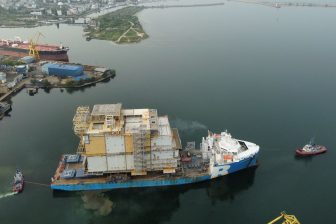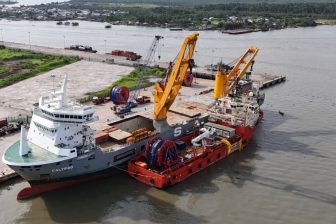
United O7 readying to open US office in Houston
United O7, the joint venture of United Heavy Lift and Ocean7 Projects, is readying to open a new joint office in Houston. “We are slowly moving forward and finding customers for our ships”, says managing director Lars Bonnesen of United Heavy Lift.
In September last year, United Heavy Lift and Ocean7 Projects announced the creation of a new joint venture called United O7, in which the companies will combine their fleet to offer a wider range of services to their customers.
“Our fleets complement each other well. Ocean7 has an attractive fleet of smaller vessels, while we operate larger vessels with heavy lift capabilities”, says Bonnesen.
As part of the cooperation, the companies have opened joint offices in Malaysia, Japan and Norway. These offices do not only function as sales offices, but also manage and operate the fleets in their respective regions.
“For example, United O7 Asia in Kuala Lumpur manages and operates all the vessels in Asia. We as United Heavy Lift have six to nine vessels in that region at any time”, Bonnesen explains.
The company is now working to open a new joint office in the United States, a new market for both companies, where the firm wants to benefit from the growing renewables and LNG markets, among other things. The office will be located in Houston, Bonnesen confirms.
In addition to broadening the scope of services, the business combination is also aimed at attracting good employees. Bonnesen: “Money talks but good employees also want to be challenged, so to attract the right people, you need the right fleet. A larger and diversified fleet will help us fulfil that criterion.”
United Heavy Lift operates a fleet of 16 multipurpose heavy lift vessels (with lift capacities ranging from 160 to 900 tonnes), four semi-submersible heavy transport vessels and two module carriers, while Ocean7 Projects operates 23 smaller geared multipurpose vessels including ships from the so-called M2 Runner series which have a relatively large cargo intake for their size.
Zeamarine
Among UHL’s 16 multipurpose vessels are nine eco-friendly F900 heavy-lift vessels that were previously chartered to Zeamarine, which is disposing of vessels a part of a business restructuring.
The eco-vessels are expected to give UHL a competitive edge as the ships burn less fuel and help to realize sustainability goals. Besides the addition of the new vessels, Bonnesen does not expect UHL to benefit from Zeamarine’s problems. “First of all, I’m very sorry about Zeamarine”, he says. “No one likes to see their competitors fall. We have gotten some ships out of it but other than that, I do not think it will benefit anyone as the ships are not leaving the market. They are simply changing hands.”
Coronavirus
The problems at Zeamarine have largely been caused by the rapid expansion of the company but the prolonged downturn of the market is also to blame. Project and breakbulk carriers have been waiting for a market recovery for years but despite increasingly optimistic forecasts from analysts, 2020 has started very weakly due to IMO2020 and the coronavirus.
“I’ve been in this industry for more than 25 years and one thing I’ve learned is that you always have to look at the bottom line, not the number of ships”, Bonnesen says. “The coronavirus is definitely a joker in today’s market. We have made contingency plans and we’re trying to reposition some of our vessels, but China is a major market, so to some extent, we’ll also just have to see how it develops.”
You just read one of our premium articles free of charge
Register now to keep reading premium articles.




